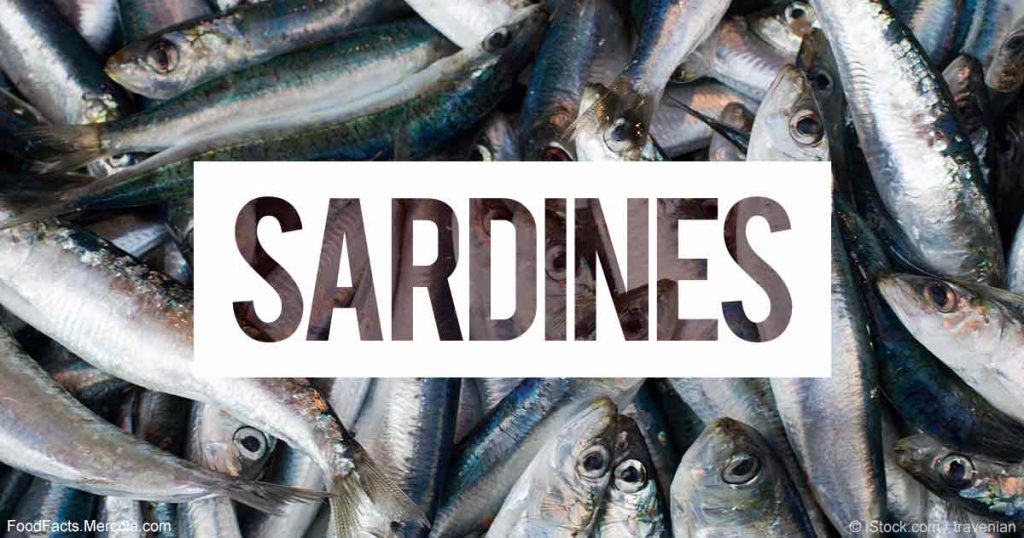Benefits of Sardines – Sardine facts and health benefits
Sardines are small, oily fish that belong to the family called Clupeidae. They are also known by the name pilchards in some places. It is named after an Italian island “Sardinia”, where it was possibly first found abundantly. These fish are found mostly in the Atlantic and Pacific oceans, as well as the Mediterranean Sea. According to a report, in the past, sardines were the single largest component of fish harvesting done around the world. They generally come as canned fish and they are commonly known as canned sardines. Although sardines are regarded as a single species, there are actually 21 types of fish that can easily fall under the category of sardines. They are commercially fished for foods and variety of uses, including animal feed, sardine oil used in manufacture paint, varnish and linoleum. Some of the most popular species of sardines include sardina, sardinops, sardinella, and dussumieria. Let’s find out more about the benefits of sardines with Topfoodss!
Contents
Nutritional value
In addition to its fishy taste, sardines are also a rich source of nutrients, vitamins and minerals. Consuming 149 grams of sardines provides 13.32 µg Vitamin B-12, 78.5 µg Selenium, 730 mg Phosphorus, 36.68 g Protein, 569 mg Calcium, 4.35 mg Iron, 7,815 mg Vitamin B3, 17 , 06 g Total Fat, 7.2 µg Vitamin D, 0.277 mg Copper and 457 mg Sodium. Furthermore, many amino acids 0.411 g Tryptophan, 1,608 g Threonine, 1.69 g Isoleucine, 2,981 g Leucine, 3,367 g Lysine, 1,086 g Methionine, 0.393 g Cystine, 1,432 g Phenylalanine and 1,238 g Tyrosine are also found in 149 grams of sardines.
Vitamin

Sardines serve as a good source of many essential vitamins, including A, E and D. A 3-ounce serving of sardines contains about 1.74 milligrams of vitamin E and 93 international units of vitamin A. Healthy eyes, while vitamin E protects your cells from damage, plays a key role in maintaining a healthy heart. Both vitamins keep your immune system strong. Because vitamins A and E are classified as fat soluble, the fat in sardines promotes a more efficient absorption of these nutrients. Sardines are one of the few natural sources of vitamin D, providing 165 international units per 3-ounce serving. Vitamin D works with calcium to make your teeth and bones strong.
Mineral
In addition to vitamins, sardines also provide many essential minerals. A 3-ounce serving contains 324 milligrams of calcium, which not only keeps bones strong, but also aids muscle contraction, neurotransmission, hormone secretion, and a healthy cardiovascular system. Sardines contain 417 milligrams of phosphorus, another mineral important for building strong bones and teeth. 339 milligrams of potassium per serving support rhythmic heart function, promote muscle contraction and help combat the effects of too much sodium. Your body needs iron to produce proteins involved in oxygen transport, and sardines contain 2.49 milligrams of iron per serving.
Source of Omega-3

Omega-3s benefit the body in many ways and have been well researched for their importance to the body. One can of sardines contains more than half of the recommended daily dose of omega-3s. Sardines provide both EPA and DHA fats, which benefit the brain, heart and reduce inflammation.
Many people consume high amounts of omega-6 oils such as vegetable oils and margarine. This can disturb the balance of omega-3 to omega-6 fats in the body and lead to many problems. Experts claim that DHA and EPA are the body’s easiest form of omega-3s and consuming them from foods like sardines and other fatty fish may help regulate this ratio.
Reduced Risk of Age-Related Macular Degeneration
Age related macular degeneration (AMD) is a condition which is commonly seen among people age 50 or more Macular and retinal degeneration over the years results in loss of vision. Recent research has shown that taking fish, mainly fish like sardines, lead to the reduced risk of developing AMD. On the other hand, taking regular fat or saturated fat can increase the risk of developing AMD. Everything in moderation! Studies also strongly suggest that the consumption of omega-3 fatty acids also reduces the risk of dry eye syndrome, a common cause of ocular complaints.
High in selenium

Selenium is vital for thyroid health and is something that I focus on as someone with Hashimoto’s. Sardines are a rich source of selenium that comes with the cofactors to make it easy to absorb.



